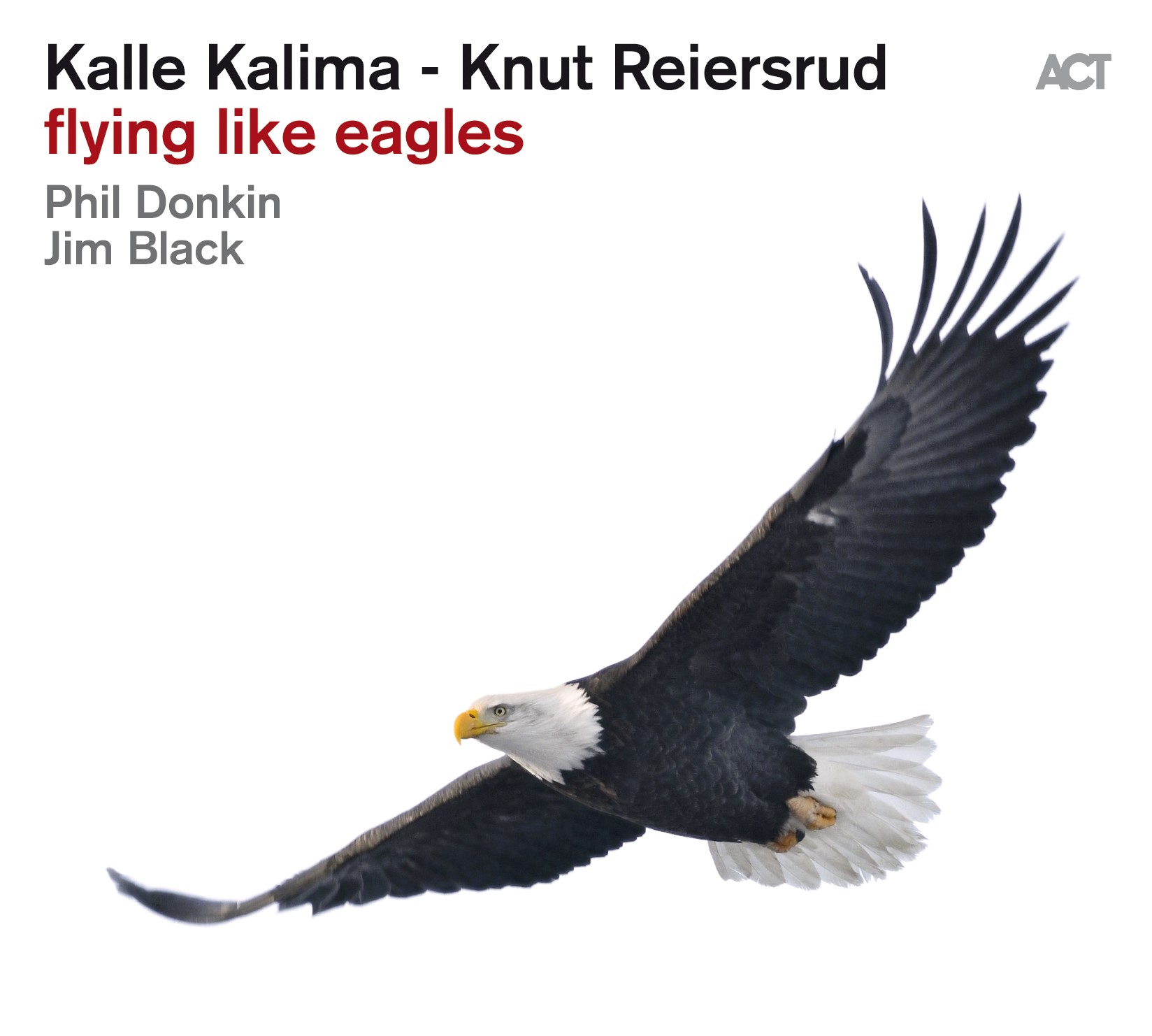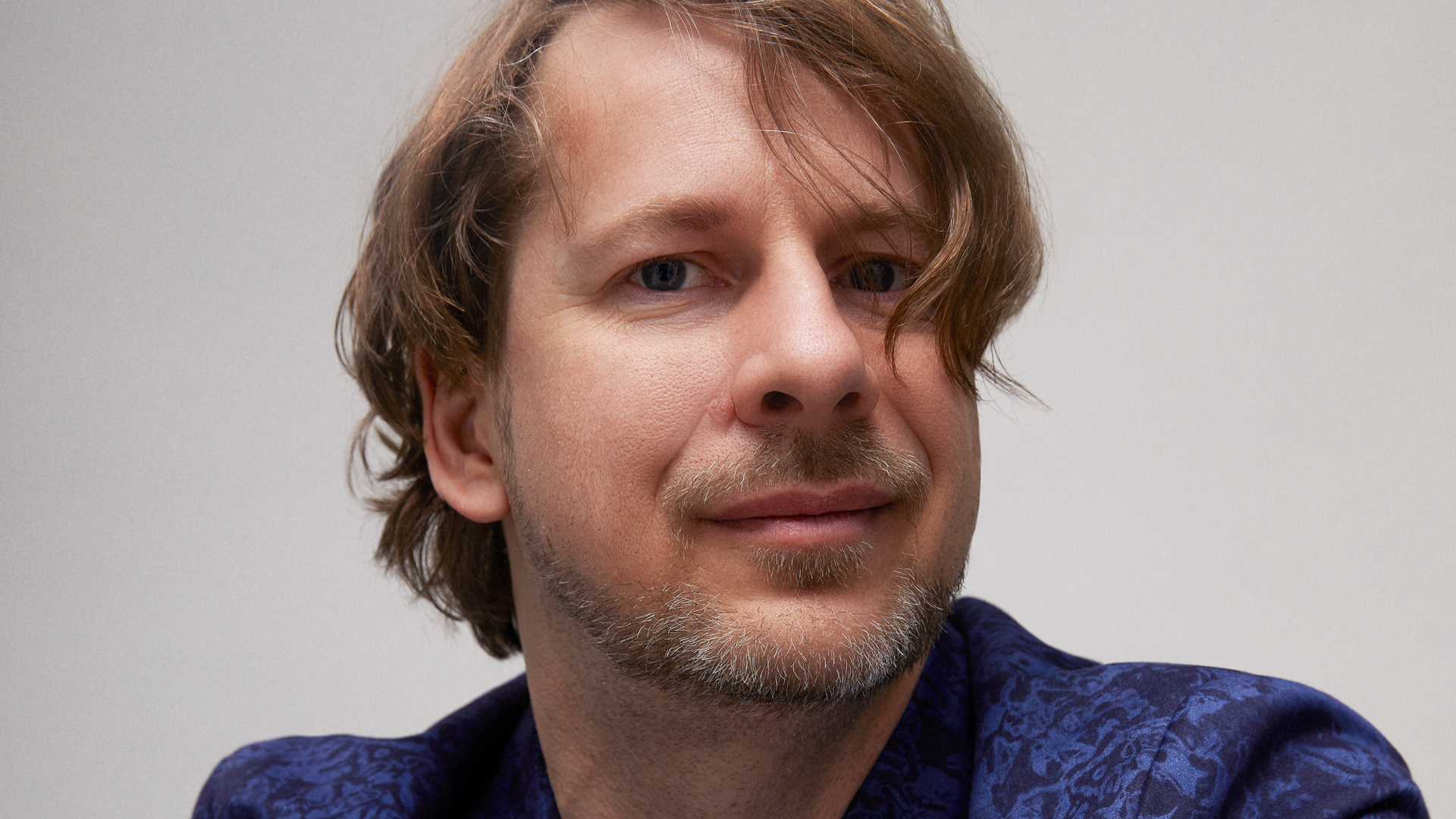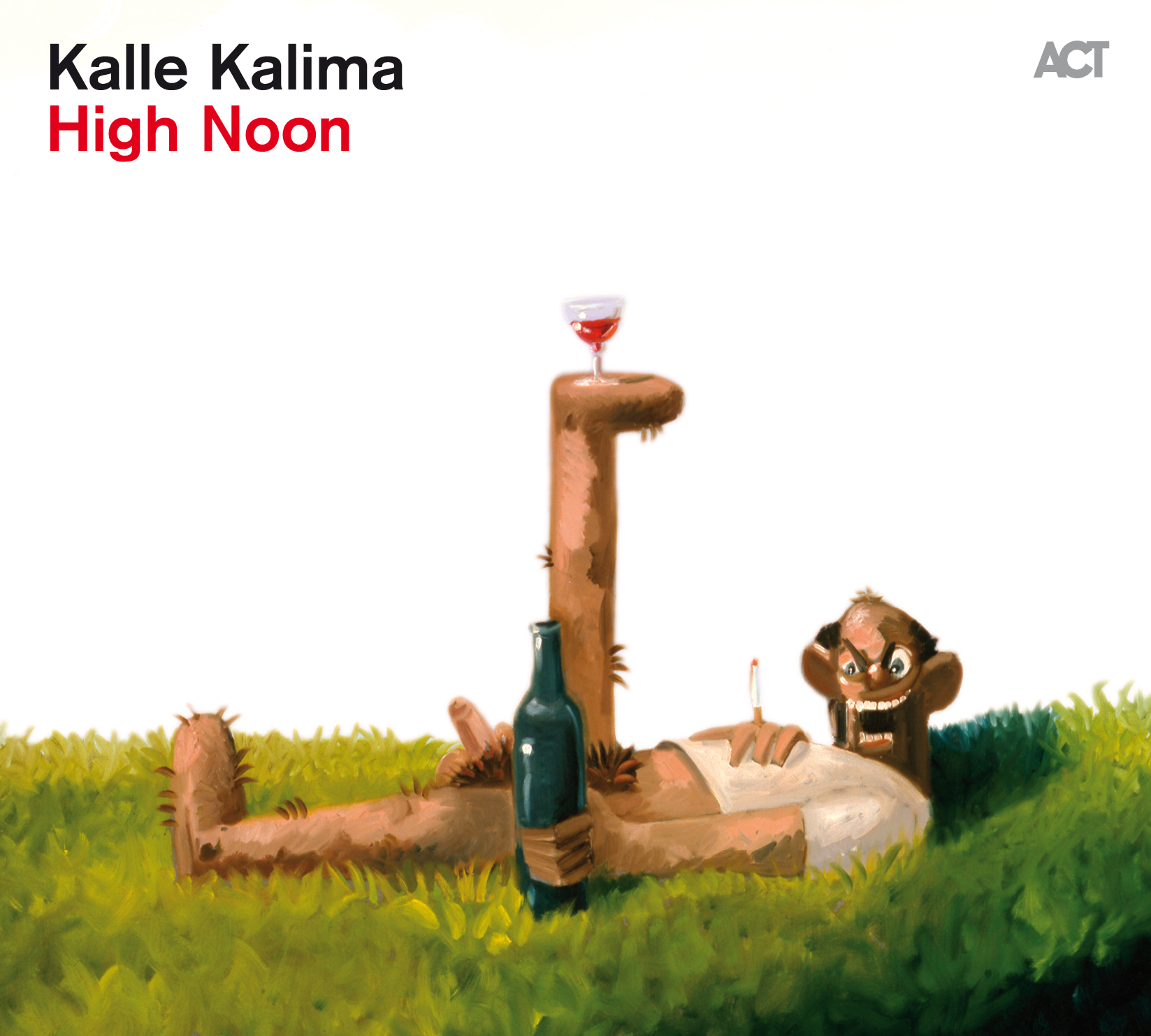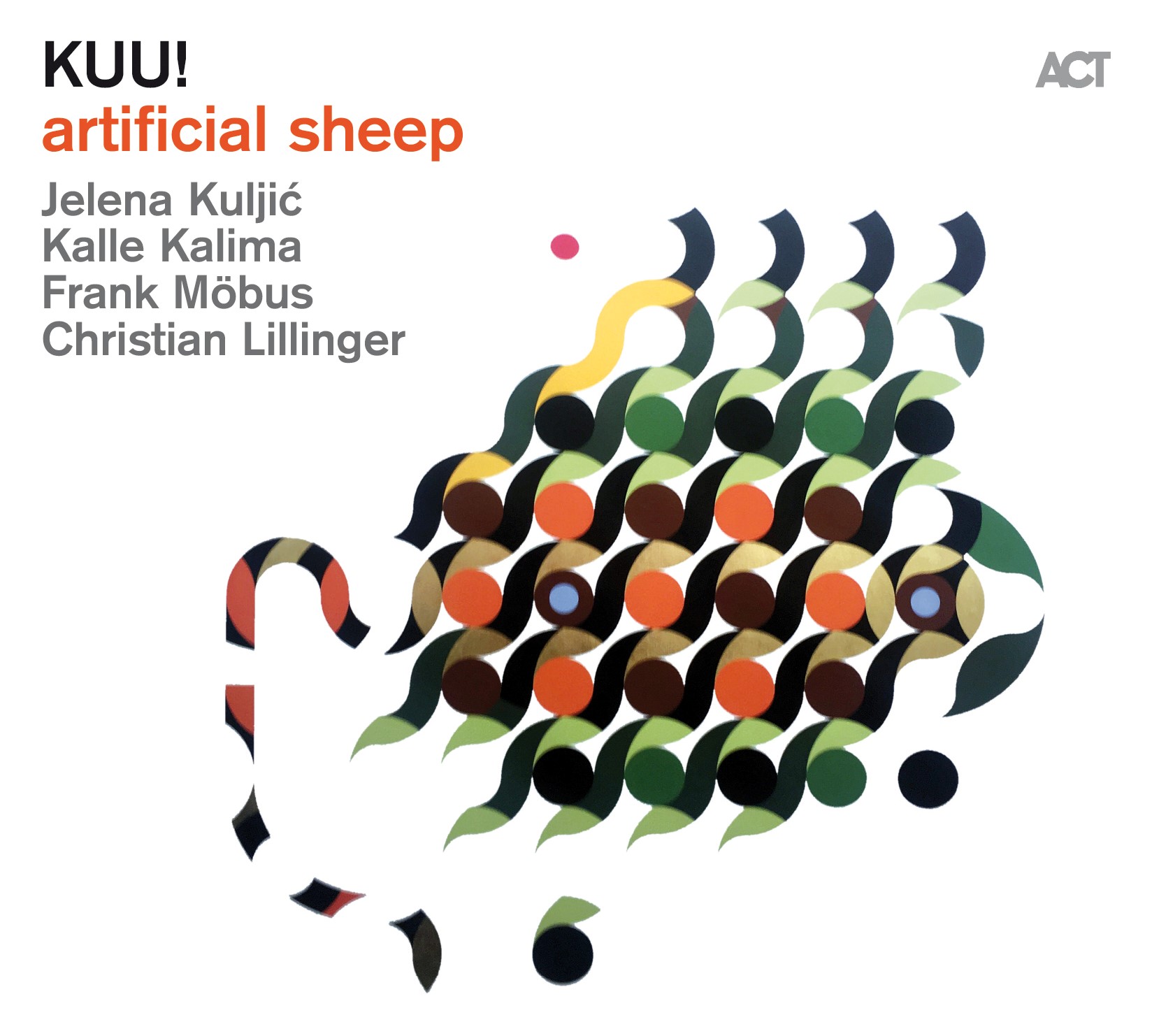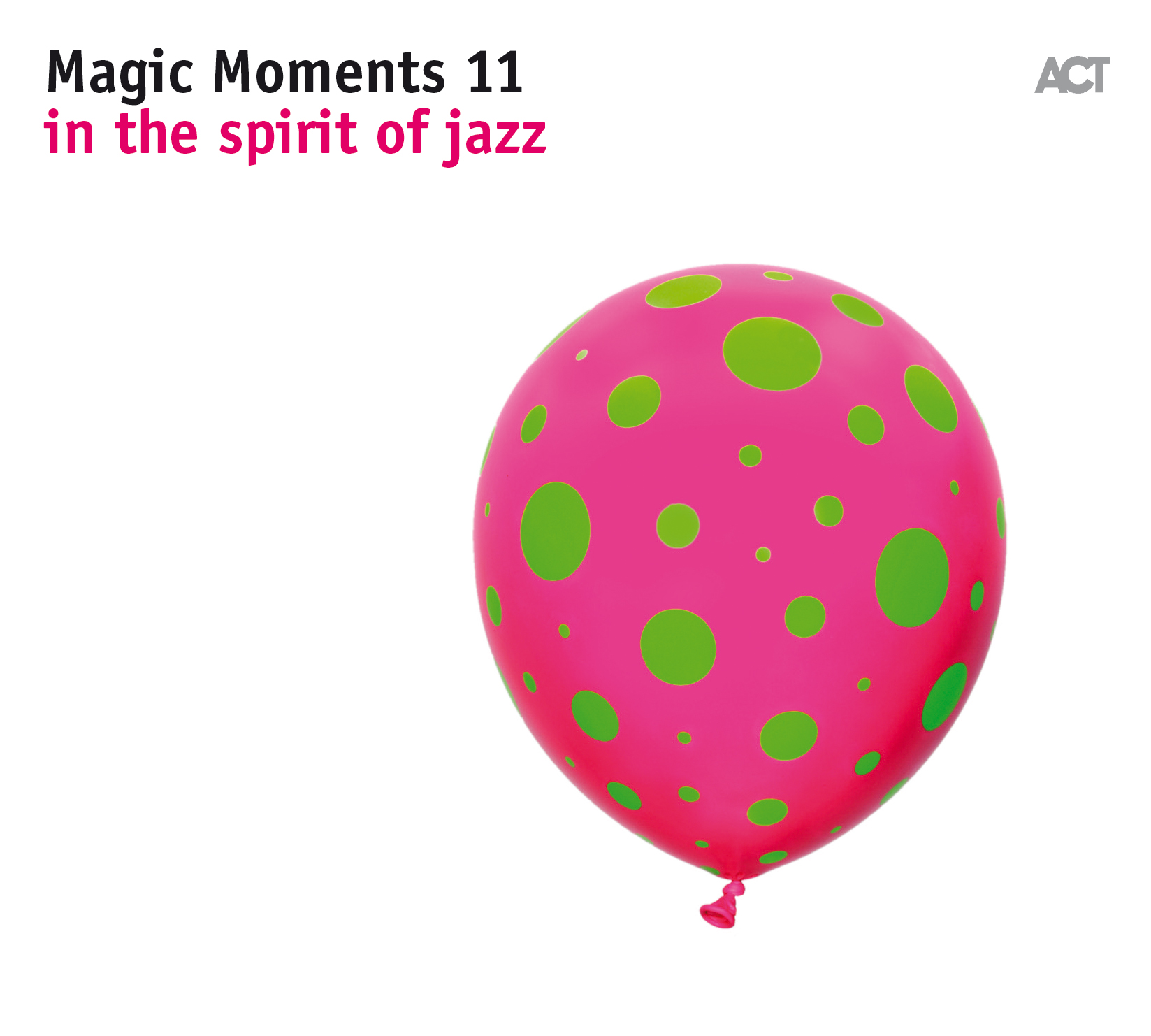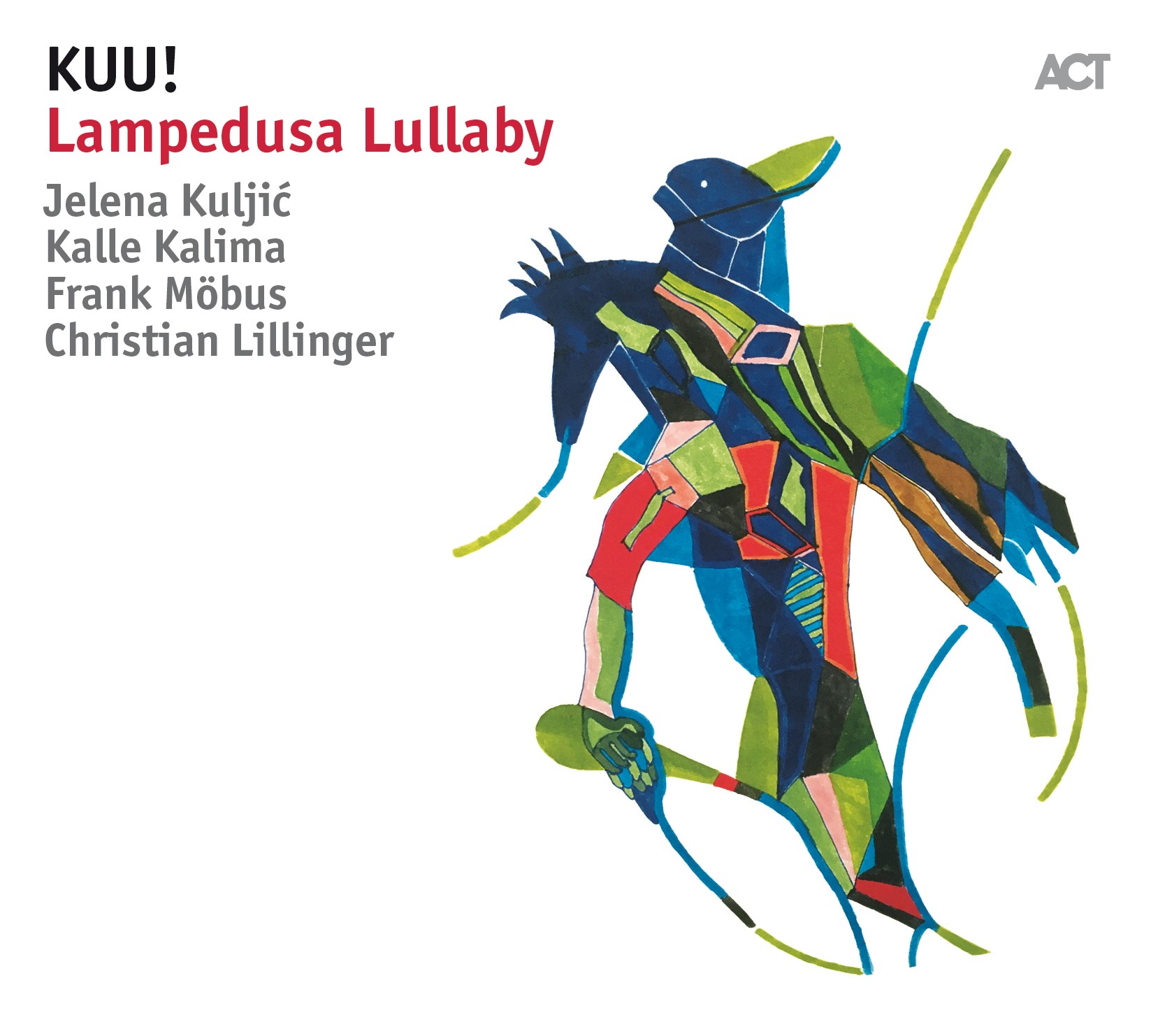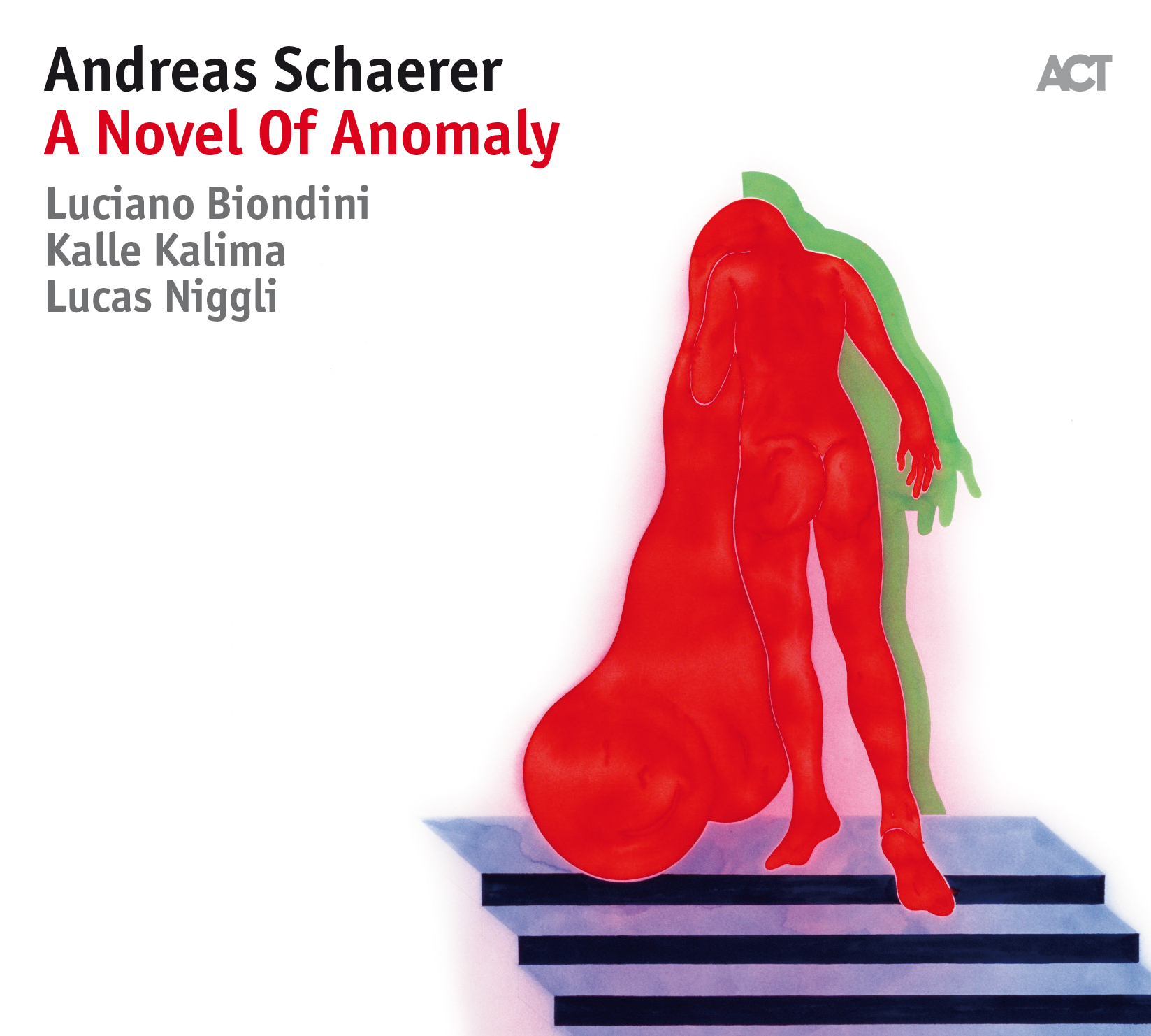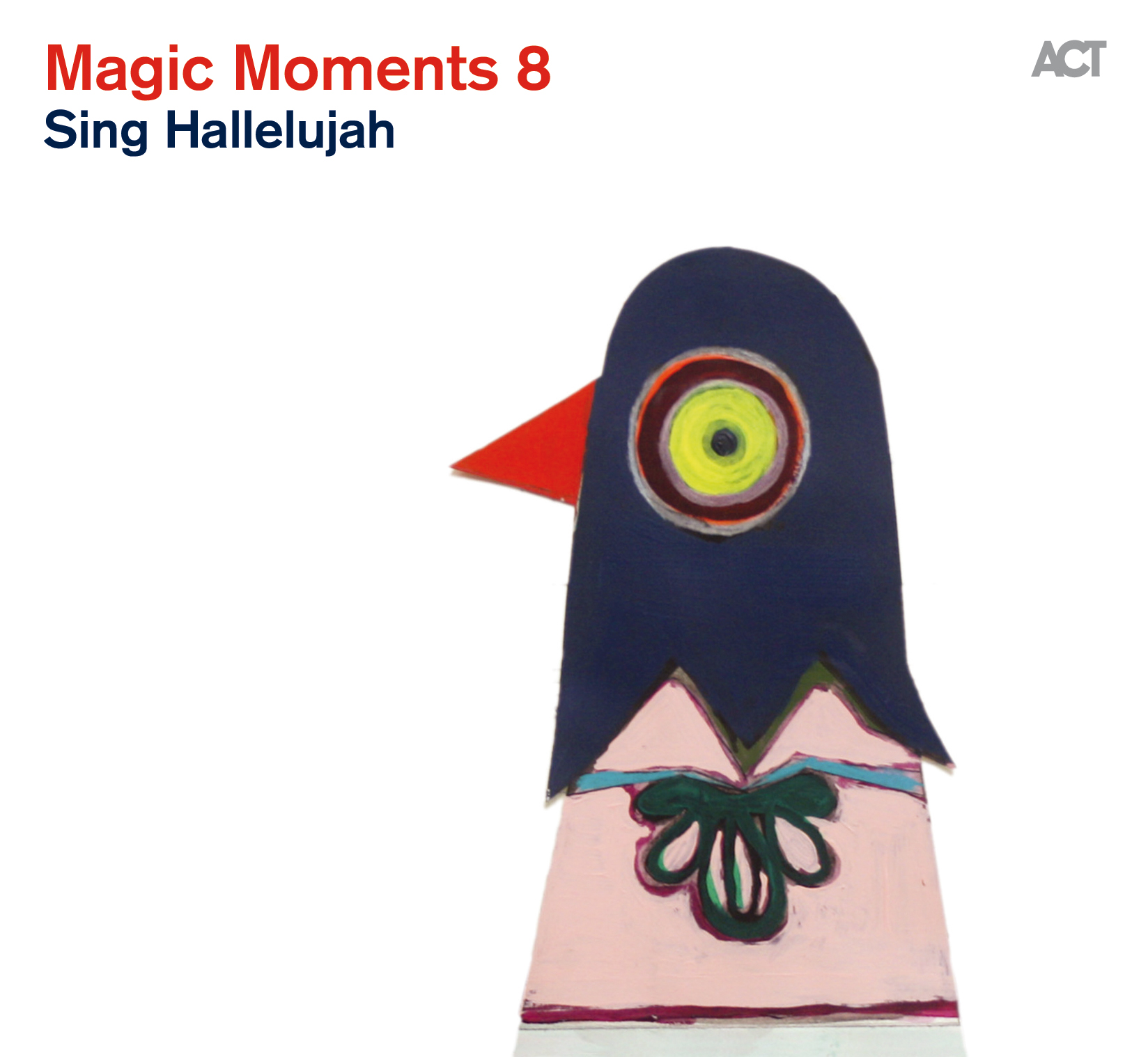Back
VÖ: 30.08.2019
Genre: World Jazz
„Idiosyncratic yet satisfying instrumental covers of traditional tunes, several with Native American pedigree, and some classic rock. * * * * “-The Scotsman (GB)
Kalle Kalima / electric guitar
Knut Reiersrud / resonator, electric & lap steel guitar, harmonica
Phil Donkin / bass
Jim Black / drums
Recorded by Klaus Scheuermann at Hansa Studios Berlin, April 23 & 24, 2019 Mixed and mastered by Klaus Scheuermann Curated and produced by Siggi Loch
As you listen to "Flying Like Eagles", an episode from Jack Kerouac's novel "On the Road" might flicker across your mind, or perhaps a scene from the movie "Easy Rider". And that is because the point of departure for this album is traditional roots music from America, inspired in part by American-Indian heritage, plus three classic songs that are also imbued with that same spirit of unspoilt authenticity and freedom.
The origins of the main protagonists on this album might come as a surprise, however: these two guitarists are not actually from the southern states of the US but from Scandinavia. And yet there isn’t any contradiction: Kalle Kalima, who is Finnish, had already developed a passion for traditional American folk music as a teenager, and a year spent as an exchange student in Chicago immersed in the local scene deepened that interest further. Indeed, this music has remained an abiding inspiration and presence in Kalima’s music, most recently in his Americana jazz project "High Noon". Knut Reiersrud has been demonstrating all his life that Norwegians have the blues too. After Buddy Guy and Otis Rush discovered him at the age of 18, the US became his musical home. He played with greats of American music such as Dr John, Stevie Ray Vaughan, the Blind Boys of Alabama and soul singer Mighty Sam McClain.
Guitarists Kalima and Reiersrud complement each other perfectly – one comes from jazz and rock, the other from blues and world music. Kalima explains: " It was Siggi Loch who had the idea for this album and who brought us together. We only knew each of other before then from having listened to one another. But in the studio, a natural flow developed quickly. I mostly took the melody line with my electric guitar, whereas Knut on his various different guitars tended to concentrate on colours, sounds and sound layers. It was important to us that the music should sound very genuine, so we didn't fix much in advance, and preferred to put our trust in what would happen as we played. The album should sound like we're jamming." And so "Flying Like Eagles" has become a proper guitar album, in which Kalima and Reiersrud explore the manifold possibilities of their instruments. The fact that it sounds so fresh, intuitive and authentic is also due to the first-class rhythm section: Phil Donkin on bass and drummer Jim Black are both first-call players who have made their mark on the New York scene.
The challenge here was to take pieces with ancient melodies whose shape is often determined by their vocal line and to give them new life. The opening and closing tracks both have their origins in the American-Indian tradition, but each one develops in completely the oppo-site direction from the other. "Strong Wind, Deep Water, Tall Trees, Warm Fire" has a way of hovering hypnotically, whereas "Little One" with its constantly repeated melodic line has a restrained opening from which it moves into an ecstatic rock-inflected improvisation by Kalima. Buffalo Springfield's protest song "For What It's Worth" lays down a strong groove and perhaps best defines the quintessence of "Flying Like Eagles". It demonstrates not just the superb artistry of both the guitarists as individual instrumentalists but also shows the way they instinctively dovetail with each other.
With its stomping rhythm and a haunting melodic hook, "Kiowa Lullaby" seems reminiscent of a war dance. The Eagles classic "Hotel Cali-fornia" is given a particular and unexpected twist by merging the origi-nal with a West African melody that Reiersrud once encountered on one of his many musical travels around the world. "Wayfaring Stranger" pours out the loneliness of a wandering musician. This folk/gospel ballad is given an exotic tinge with the introduction of a Hawaiian lap steel guitar. And finally, the quartet give "Hurt", a song best known in Johnny Cash's desolate interpretation, gets a hard-driven remake which would not be out of place in a film by Quentin Tarantino.
"Many of the songs on this disc come from populations and minorities who have lived harmoniously and in a connected way with nature, so the album is a tribute to them," Knut Reiersrud underlines. And it is a message which is now more topical than ever. May eagles continue to fly high, and for a long time yet...
"Flying Like Eagles" was created by curator/producer Siggi Loch for the concert series "Jazz at Berlin Philharmonic". It will receive its live premiere on 24 September 2019 at a concert in the Kammermusiksaal (chamber music hall) of the Berliner Philharmonie.
Kalle Kalima / electric guitar
Knut Reiersrud / resonator, electric & lap steel guitar, harmonica
Phil Donkin / bass
Jim Black / drums
Recorded by Klaus Scheuermann at Hansa Studios Berlin, April 23 & 24, 2019 Mixed and mastered by Klaus Scheuermann Curated and produced by Siggi Loch
As you listen to "Flying Like Eagles", an episode from Jack Kerouac's novel "On the Road" might flicker across your mind, or perhaps a scene from the movie "Easy Rider". And that is because the point of departure for this album is traditional roots music from America, inspired in part by American-Indian heritage, plus three classic songs that are also imbued with that same spirit of unspoilt authenticity and freedom.
The origins of the main protagonists on this album might come as a surprise, however: these two guitarists are not actually from the southern states of the US but from Scandinavia. And yet there isn’t any contradiction: Kalle Kalima, who is Finnish, had already developed a passion for traditional American folk music as a teenager, and a year spent as an exchange student in Chicago immersed in the local scene deepened that interest further. Indeed, this music has remained an abiding inspiration and presence in Kalima’s music, most recently in his Americana jazz project "High Noon". Knut Reiersrud has been demonstrating all his life that Norwegians have the blues too. After Buddy Guy and Otis Rush discovered him at the age of 18, the US became his musical home. He played with greats of American music such as Dr John, Stevie Ray Vaughan, the Blind Boys of Alabama and soul singer Mighty Sam McClain.
Guitarists Kalima and Reiersrud complement each other perfectly – one comes from jazz and rock, the other from blues and world music. Kalima explains: " It was Siggi Loch who had the idea for this album and who brought us together. We only knew each of other before then from having listened to one another. But in the studio, a natural flow developed quickly. I mostly took the melody line with my electric guitar, whereas Knut on his various different guitars tended to concentrate on colours, sounds and sound layers. It was important to us that the music should sound very genuine, so we didn't fix much in advance, and preferred to put our trust in what would happen as we played. The album should sound like we're jamming." And so "Flying Like Eagles" has become a proper guitar album, in which Kalima and Reiersrud explore the manifold possibilities of their instruments. The fact that it sounds so fresh, intuitive and authentic is also due to the first-class rhythm section: Phil Donkin on bass and drummer Jim Black are both first-call players who have made their mark on the New York scene.
The challenge here was to take pieces with ancient melodies whose shape is often determined by their vocal line and to give them new life. The opening and closing tracks both have their origins in the American-Indian tradition, but each one develops in completely the oppo-site direction from the other. "Strong Wind, Deep Water, Tall Trees, Warm Fire" has a way of hovering hypnotically, whereas "Little One" with its constantly repeated melodic line has a restrained opening from which it moves into an ecstatic rock-inflected improvisation by Kalima. Buffalo Springfield's protest song "For What It's Worth" lays down a strong groove and perhaps best defines the quintessence of "Flying Like Eagles". It demonstrates not just the superb artistry of both the guitarists as individual instrumentalists but also shows the way they instinctively dovetail with each other.
With its stomping rhythm and a haunting melodic hook, "Kiowa Lullaby" seems reminiscent of a war dance. The Eagles classic "Hotel Cali-fornia" is given a particular and unexpected twist by merging the origi-nal with a West African melody that Reiersrud once encountered on one of his many musical travels around the world. "Wayfaring Stranger" pours out the loneliness of a wandering musician. This folk/gospel ballad is given an exotic tinge with the introduction of a Hawaiian lap steel guitar. And finally, the quartet give "Hurt", a song best known in Johnny Cash's desolate interpretation, gets a hard-driven remake which would not be out of place in a film by Quentin Tarantino.
"Many of the songs on this disc come from populations and minorities who have lived harmoniously and in a connected way with nature, so the album is a tribute to them," Knut Reiersrud underlines. And it is a message which is now more topical than ever. May eagles continue to fly high, and for a long time yet...
"Flying Like Eagles" was created by curator/producer Siggi Loch for the concert series "Jazz at Berlin Philharmonic". It will receive its live premiere on 24 September 2019 at a concert in the Kammermusiksaal (chamber music hall) of the Berliner Philharmonie.
